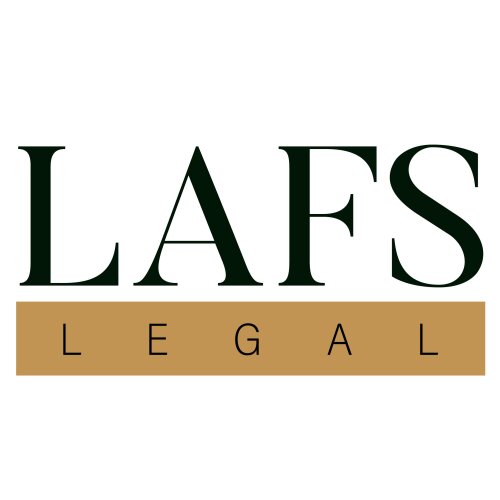Best Tax Increment Financing Lawyers in Bangkok
Share your needs with us, get contacted by law firms.
Free. Takes 2 min.
List of the best lawyers in Bangkok, Thailand
Legal guides written by Smart Legal Solutions:
- Main Legal Measures to Protect Foreign Investment in Thailand
- The importance of the geographical indications for the Thai economy
Legal guides written by SIAM LEGAL INTERNATIONAL:
- Defamation Laws in Thailand: Criminal Charges and Civil Suits
- The State of Thailand’s Long-Term Resident (LTR) Visa Program in 2025
- The Penalties Of Not Filing Your Income Tax Return As A Foreigner In Thailand
Thailand Tax Increment Financing Legal Articles
Browse our 1 legal article about Tax Increment Financing in Thailand written by expert lawyers.
- Thai Legal Framework for Cryptocurrencies
- Technology, investment, and money have all been fundamentally altered by cryptocurrencies. Countries all throughout the globe struggle to design legal regimes that safeguard consumers while fostering innovation as these digital assets develop. Thailand distinguishes itself in this sense as it has one of the most thorough regulatory frameworks regarding cryptocurrencies... Read more →
About Tax Increment Financing Law in Bangkok, Thailand
Tax Increment Financing (TIF) is a public financing method used to subsidize infrastructure and community-improvement projects in many regions globally, including Bangkok, Thailand. TIF encourages development by allowing municipalities to divert future property tax revenue increases from a defined area towards an economic development project. In Bangkok, TIF is primarily used to stimulate urban renewal and support public infrastructure developments in underdeveloped areas.
Why You May Need a Lawyer
Legal guidance in Tax Increment Financing is crucial due to the complex nature of the financial and regulatory frameworks involved. You may require a lawyer if you are:
- A developer seeking guidance on generating revenue through TIF for a project.
- A city official involved in structuring or negotiating TIF agreements.
- A property owner affected by a TIF project or seeking to understand its impact on your property taxes.
- Investing in property within a TIF district and needing a comprehensive understanding of potential benefits and obligations.
Local Laws Overview
In Bangkok, the TIF framework is governed by a set of local laws and regulations that define how these financial instruments can be implemented. Key aspects include:
- Establishment of TIF Districts: The criteria and process for establishing TIF districts, usually focusing on underdeveloped or economically distressed areas.
- Revenue Allocation: Guidelines on how the additional property tax revenue is allocated to support infrastructure and redevelopment projects within the district.
- Project Eligibility: Specific kinds of developments that are eligible for TIF financing, with an emphasis on projects that provide public benefits.
- Public Participation and Transparency: Legal requirements to ensure community involvement and transparency in the approval and implementation process of TIF districts.
Frequently Asked Questions
What exactly is Tax Increment Financing?
Tax Increment Financing is a method where the increase in property tax revenues from an area (the increment) is used to fund infrastructure and public projects within that area.
How does TIF benefit developers in Bangkok?
TIF provides developers with the financial means to undertake projects that may otherwise be unfeasible due to initial high costs, by leveraging future tax revenue.
Are there any risks associated with TIF?
Yes, if projects do not generate expected revenue increases, the funds may not cover costs, potentially leaving municipal obligations unmet.
How is a TIF district established?
A TIF district is established through a legal process that involves municipal planning and approval based on specific criteria such as area blight or developmental potential.
Can existing property tax rates change under TIF?
No, existing property tax rates do not change; rather, the increment in revenues from increased property values is what funds the TIF.
How long does a typical TIF last in Bangkok?
While it varies, TIF districts commonly last between 20 to 30 years, depending on the project scope and financial requirements.
What types of projects are funded by TIF in Bangkok?
TIF typically funds projects that include public infrastructure improvements, incentives for economic development, and revitalization of blighted areas.
Is public input required in the TIF process?
Yes, public hearings and participation are often part of the TIF establishment process to ensure community interests are considered.
Are there any limitations on what TIF funds can be used for?
TIF funds can primarily be used for public infrastructure and redevelopment projects, but the specific usage is governed by local guidelines.
Who manages TIF funds in Bangkok?
TIF funds are typically managed by municipal authorities or designated local government entities in charge of economic development.
Additional Resources
For further guidance on TIF in Bangkok, the following resources can be helpful:
- Bangkok Metropolitan Administration: The local government body responsible for city planning and TIF district management.
- The Thai Real Estate Developers Association: Offers insight and support for developers engaging in TIF projects.
- Investor and Business Development Agencies: Provide resources and support for businesses looking to invest in TIF districts.
Next Steps
If you need legal assistance with Tax Increment Financing in Bangkok, consider these steps:
- Consult with a lawyer specializing in real estate and municipal finance to understand the specific requirements and obligations of a TIF district.
- Engage with local government authorities or economic development offices to gather information on proposed or existing TIF projects relevant to your interests.
- Attend public meetings or hearings related to TIF to stay informed about developments and voice any concerns or suggestions as part of the process.
Lawzana helps you find the best lawyers and law firms in Bangkok through a curated and pre-screened list of qualified legal professionals. Our platform offers rankings and detailed profiles of attorneys and law firms, allowing you to compare based on practice areas, including Tax Increment Financing, experience, and client feedback.
Each profile includes a description of the firm's areas of practice, client reviews, team members and partners, year of establishment, spoken languages, office locations, contact information, social media presence, and any published articles or resources. Most firms on our platform speak English and are experienced in both local and international legal matters.
Get a quote from top-rated law firms in Bangkok, Thailand — quickly, securely, and without unnecessary hassle.
Disclaimer:
The information provided on this page is for general informational purposes only and does not constitute legal advice. While we strive to ensure the accuracy and relevance of the content, legal information may change over time, and interpretations of the law can vary. You should always consult with a qualified legal professional for advice specific to your situation.
We disclaim all liability for actions taken or not taken based on the content of this page. If you believe any information is incorrect or outdated, please contact us, and we will review and update it where appropriate.

















